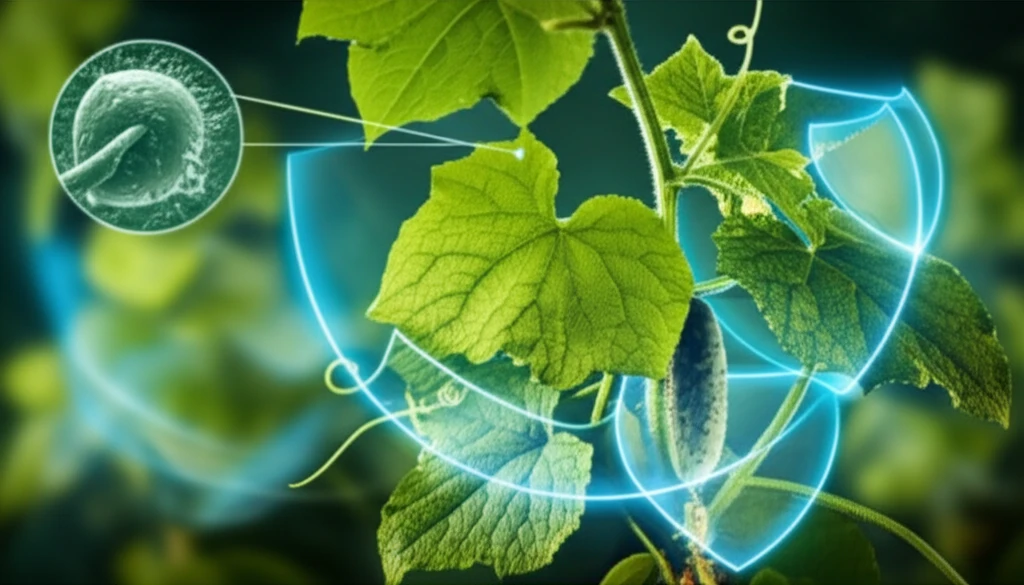
Unlocking Nature's Defense: How a Cucumber Gene Could Revolutionize Plant Health
"Scientists discover a key gene in cucumbers that boosts resistance to fungal infections, paving the way for healthier crops and sustainable agriculture."
In a world grappling with the challenges of food security and sustainable agriculture, scientists are constantly seeking innovative ways to protect crops from diseases. A recent study has unveiled a promising breakthrough: a gene in cucumbers that could significantly boost their resistance to fungal infections. This discovery not only sheds light on the intricate defense mechanisms of plants but also opens up exciting possibilities for creating healthier, more resilient crops.
Fungal diseases pose a significant threat to agriculture, causing substantial crop losses and economic damage. Traditional methods of disease control, such as pesticides, can have negative environmental impacts and raise concerns about food safety. Therefore, finding natural ways to enhance plant immunity is crucial for ensuring a sustainable and secure food supply.
This article explores the remarkable findings of a research team that identified and characterized a gene in cucumbers, named CsWRKY50, which plays a pivotal role in their defense against a common and destructive fungal pathogen. We will delve into the science behind this discovery, its potential impact on agriculture, and the broader implications for the future of plant health and food production.
Decoding CsWRKY50: The Cucumber's Secret Weapon Against Fungal Invaders

The study focused on the cucumber (Cucumis sativus), an economically important vegetable crop susceptible to various diseases, including downy mildew caused by the fungus Pseudoperonospora cubensis. Researchers sought to understand the plant's natural defense mechanisms against this pathogen. Through meticulous analysis, they identified CsWRKY50, a gene that appears to be a key player in the cucumber's immune response.
- Increased resistance to downy mildew and other fungal pathogens.
- Enhanced production of defense-related compounds.
- Reduced damage from fungal infection.
- Enhanced overall plant health and yield.
A Brighter Future for Cucumbers and Beyond
The discovery of CsWRKY50 represents a significant step forward in understanding plant immunity and developing sustainable solutions for crop protection. As researchers continue to explore the potential of this gene, we can look forward to healthier cucumbers, reduced reliance on chemical pesticides, and a more resilient agricultural system. This breakthrough underscores the importance of basic research in plant biology and its potential to transform the way we grow food, ensuring a more sustainable and secure future for all.
